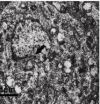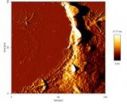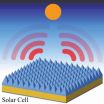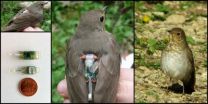(Press-News.org) Say you are out clothes shopping and you spot something that brings you back to a special time from your childhood when you were surrounded by friends and family. Suddenly, you find yourself purchasing an expensive shirt that makes you feel like a kid again. According to a new study in the Journal of Consumer Research, we're more likely to spend money when we're feeling nostalgic.
"We wondered why nostalgia is so commonplace in marketing. One reason could be that feeling nostalgic weakens a person's desire for money. In other words, someone might be more likely to buy something when they are feeling nostalgic," write authors Jannine D. Lasaleta (Grenoble École de Management), Constantine Sedikides (University of Southampton), and Kathleen D. Vohs (University of Minnesota).
The authors conducted six experiments that looked at how much people were willing to spend, donate, and value money when feeling a sense of nostalgia-evoked social connectedness.
In one study, consumers asked to think about the past were willing to pay more for a set of products than consumers asked to think about new or future memories. Another study showed an increased willingness to give more money (but not time) to others after recalling, reflecting, or writing about a nostalgic past life event. Additionally, consumers asked to think about a nostalgic event were less willing to endure unpleasant sounds in exchange for a set amount of money than consumers who were asked to think about an ordinary event.
This information is useful to brands looking to elicit feelings of nostalgia in their promotions and product lines as well as charitable and political organizations looking to raise funds for others. During times of recession, the authors note that consumers are more reluctant to part with their money and add that nostalgia could be used to help stimulate a dwindling economy. "We found that when people have higher levels of social connectedness and feel that their wants and needs can be achieved through the help of others, their ability to prioritize and keep control over their money becomes less pressing," they conclude.
INFORMATION:
Jannine D. Lasaleta, Constantine Sedikides, and Kathleen D. Vohs. "Nostalgia Weakens the Desire for Money." Journal of Consumer Research: October 2014. For more information, contact Jannine Lasaleta or visit http://ejcr.org/.
The nostalgia effect: Do consumers spend more when thinking about the past?
2014-07-22
ELSE PRESS RELEASES FROM THIS DATE:
Trying to get kids to eat healthier? Don't tell them veggies are good for them
2014-07-22
At some point, most kids will hear that drinking milk helps make their bones strong or that fish is food for the brain. But do these messages foster the idea that if something is good for us, it must surely taste bad? According to a new study in the Journal of Consumer Research, when children hear about the benefits of healthy food, they're less likely to eat it.
"We predicted that when food is presented to children as making them strong or as a tool to achieve a goal such as learning how to read or count, they would conclude the food is not as tasty and therefore consume ...
You deserve it! Are consumers more likely to buy unique products when made to feel special?
2014-07-22
Graduating from college is an important life event often attributed to being smart and working hard. Many people celebrate this milestone achievement by buying themselves an expensive gift or taking a dream vacation. A new study in the Journal of Consumer Research shows that consumers who attribute their successes to internal character traits rather than hard work are more likely to select unique products.
"We found that consumers who attribute feelings of pride to their unique character traits—rather than how hard they worked to accomplish something—are more likely to ...
HIF 1α viral vector inhibits hippocampal neuronal apoptosis: The future of gene therapy
2014-07-22
Hypoxia-inducible factor 1 (HIF-1) attenuates amyloid-beta protein neurotoxicity and decreases apoptosis induced by oxidative stress or hypoxia in cortical neurons. Prof. Xiqing Chai and co-workers from Hebei Chemical and Pharmaceutical College, China constructed a recombinant adeno-associated virus (rAAV) vector expressing the human HIF-1α gene (rAAV-HIF-1α) efficiently, and tested the assumption that rAAV-HIF-1α represses hippocampal neuronal apoptosis induced by amyloid-beta protein. Their results confirmed that rAAV-HIF-1α significantly reduces apoptosis ...
Acupuncture at the Taixi activates cerebral neurons in old patients with MCI
2014-07-22
Previous findings have demonstrated that acupuncture at the Taixi (KI3) acupoint in healthy youths can activate neurons in cognitive-related cerebral cortex. In a perspective article released in the Neural Regeneration Research (Vol. 9, No. 11, 2014), Dr. Shangjie Chen and co-workers at Baoan Hospital, Southern Medical University, China investigated whether acupuncture at this acupoint in elderly patients with mild cognitive impairment (MCI) can also activate neurons in these regions. Researchers revealed that under resting state and task-related functional magnetic resonance ...
X-ray irradiation at a certain dose alters the neuronal cytoskeleton and cytomechanics
2014-07-22
Cranial radiotherapy is one of the most important therapeutic methods for the treatment of various types of primary and metastatic brain tumors. Although conventional photon irradiation has significantly improved the treatment of cancer, the central nervous system is prone to damage after high-dose irradiation, resulting in severe delayed or progressive nervous tissue injury. The issues regarding brain radiation injury have been widely discussed, and recent investigations have emphasized changes in pathomorphology. However, the underlying mechanism remains in debate. Researchers ...
Self-cooling solar cells boost power, last longer
2014-07-22
WASHINGTON, July 22, 2014—Scientists may have overcome one of the major hurdles in developing high-efficiency, long-lasting solar cells—keeping them cool, even in the blistering heat of the noonday Sun.
By adding a specially patterned layer of silica glass to the surface of ordinary solar cells, a team of researchers led by Shanhui Fan, an electrical engineering professor at Stanford University in California has found a way to let solar cells cool themselves by shepherding away unwanted thermal radiation. The researchers describe their innovative design in the premiere ...
Major dopamine system helps restore consciousness after general anesthesia, study finds
2014-07-22
Chicago – July 22, 2014 – Researchers may be one step closer to better understanding how anesthesia works. A study in the August issue of Anesthesiology, the official medical journal of the American Society of Anesthesiologists® (ASA®), found stimulating a major dopamine-producing region in the brain, the ventral tegmental area (VTA), caused rats to wake from general anesthesia, suggesting that this region plays a key role in restoring consciousness after general anesthesia. Activating this region at the end of surgery could provide a novel approach to proactively induce ...
Creating optical cables out of thin air
2014-07-22
Imagine being able to instantaneously run an optical cable or fiber to any point on earth, or even into space. That's what Howard Milchberg, professor of physics and electrical and computer engineering at the University of Maryland, wants to do.
In a paper published today in the July 2014 issue of the journal Optica, Milchberg and his lab report using an "air waveguide" to enhance light signals collected from distant sources. These air waveguides could have many applications, including long-range laser communications, detecting pollution in the atmosphere, making high-resolution ...
Has Antarctic sea ice expansion been overestimated?
2014-07-22
New research suggests that Antarctic sea ice may not be expanding as fast as previously thought. A team of scientists say much of the increase measured for Southern Hemisphere sea ice could be due to a processing error in the satellite data. The findings are published today in The Cryosphere, a journal of the European Geosciences Union (EGU).
Arctic sea ice is retreating at a dramatic rate. In contrast, satellite observations suggest that sea ice cover in the Antarctic is expanding – albeit at a moderate rate – and that sea ice extent has reached record highs in recent ...
Mixed genes mix up the migrations of hybrid birds
2014-07-22
Mixed genes appear to drive hybrid birds to select more difficult routes than their parent species, according to new research from University of British Columbia zoologists.
"Instead of taking well-trodden paths through fertile areas, these birds choose to scale mountains and cross deserts," says UBC researcher Kira Delmore.
Delmore harnessed a flock of B.C. Swainson's thrushes with tiny geolocating backpacks to map their routes as they migrated south through the U.S. to Central and South America.
Many of the hybrid thrushes chose intermediary migration routes situated ...





